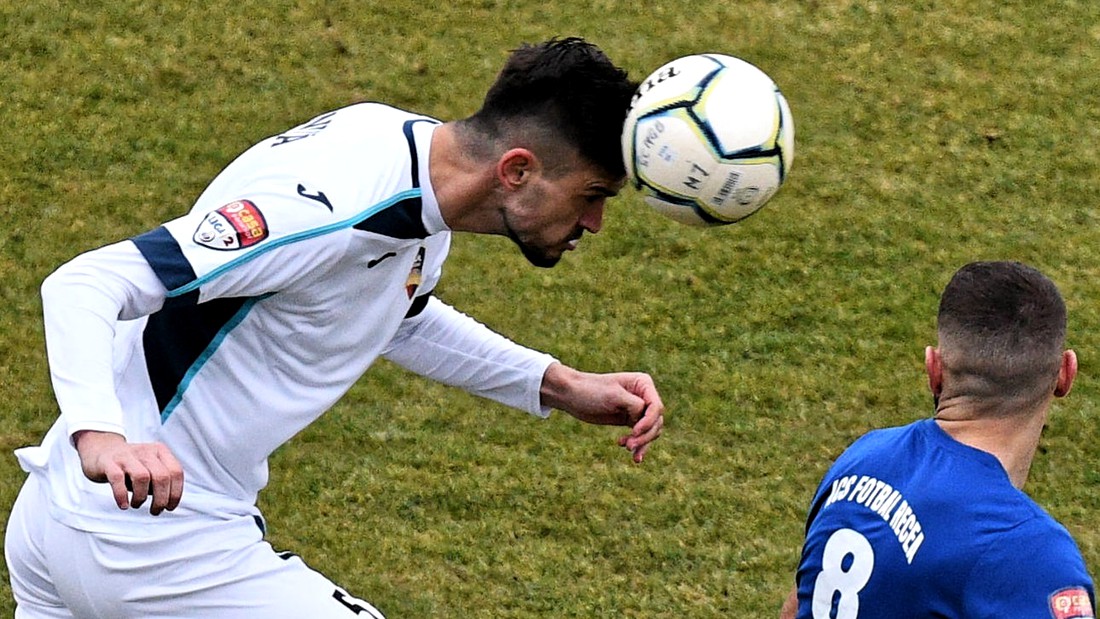March 23 – There is a reason why it is forbidden for athletes (in any sport) to wager on events in which they themselves participate – doing so endangers the integrity of the event. But the threat is very real as a current Romanian football case shows.
FIFA’s Code of Ethics forbids any officials, referees, players, match agents, intermediaries – in short, anyone whose actions can influence the outcome of a match – from any form of betting, gambling or similar activities related to football. Playing a football-themed slot machine at an online casino is fine – playing a quick game at the Spin Casino has no influence whatsoever on real-life sports. But players are strictly forbidden from wagering on any match they participate in.
The strict restrictions in FIFA’s Code of Ethics, along with the regulations of local football leagues and FAs, don’t always do the trick, though. A recent report from a local Romanian sports portal has shed some light on the betting habits of Romanian footballers – and their reasons for engaging in this activity in spite of all the rules and regulations against it.
The latest of many
Marius Ioniță (pictured), centre-back for the Romanian second-league football club Gloria Buzău, was the latest of many footballers caught betting on their own teams’ matches. The scandal broke after the player’s former fiancée told the press about his method to avoid getting caught: opening betting accounts with various online bookmakers under her name, and betting against his own team.
The player then sent messages to her, giving her instructions on what results to bet on – sometimes even at halftime in the matches he was playing in. The amounts were not stellar – between 100 and 500 Romanian lei (about $25 and $120).
The player now faces repercussions, including the termination of his contract with SCM Gloria Buzău – his contract is suspended while the club is investigating the matter.
Blame it on the wages
“Some players wager for fun, others, for the adrenaline but most of them wager because their revenues are low,” one of the players, working with a Liga 1 team (Romania’s first-tier league) interviewed by the portal told the journalists. “If the clubs would pay on time, maybe things would change.”
Another player blames the phenomenon on temptation. “Many young footballers are influenced to wager. As teams are sponsored by betting shops, we have betting shops on our shirts… experienced veterans don’t let themselves be fooled but for the young, there are many temptations – especially because their wages are so low.” Others also point out advertising as the main source of temptation, claiming that the only solution would be for betting shops to stop offering bets on local competitions.
Emilian Hulubei, president of the Amateur and Professional Players’ Association (Asociaţia Fotbaliştilor Amatori şi Nonamatori din România – AFAN) also blames the low and late wages for the issue. “The highest risk [for gambling] appears at the clubs where they are far behind on the wages”, says Hulubei. “Here, there is a risk that the players even organize themselves in groups”.
More than meets the public eye
When asked, the Romanian Football Federation (FRF), the sport’s highest governing body in the country, has a zero-tolerance policy against match-fixing and works with the local authorities to try to curb the phenomenon – but it recognises that it is very real. In the last year or so, the FRF has examined almost a dozen such cases, with several of them ending with judiciary action.
Contact the writer of this story at moc.l1745191797labto1745191797ofdlr1745191797owedi1745191797sni@o1745191797fni1745191797

